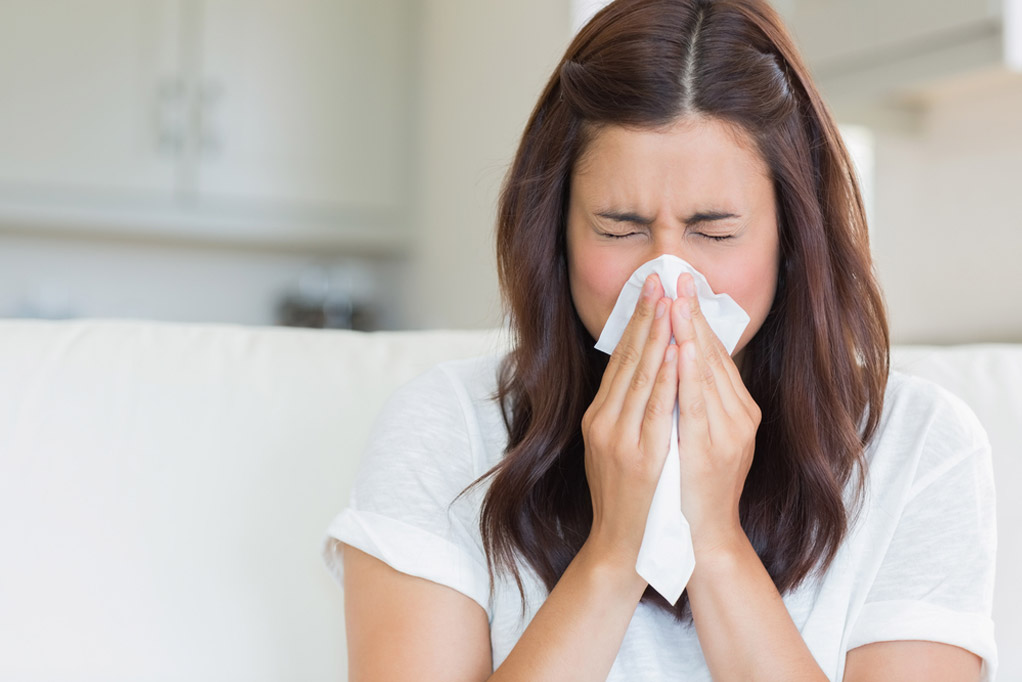
Did you know? Holding back a sneeze can potentially land you in hospital! Read on to find out which parts of your body are susceptible to damage from a sneeze.
Sneezes are powerful
Why is such a common action like sneezing so potentially harmful? This is because a sneeze can generate a violent force: when you feel the urge to sneeze, your chest contracts and your lungs expel air at speeds of up to 161km/h.
By holding in your sneeze, this forces the air pressure to find another outlet, and can cause air to go to your ear cavity instead, thus damaging your eardrum, resulting in loss of hearing or giddiness.
Due to the build-up of pressure, stifled sneezes can also cause:
- Ruptured blood vessels in the eyes
- Urinary incontinence
- Neck injury
- Arm dislocation
And in the most extreme scenario, holding back a sneeze could cause blood vessels in the brain to rupture, leading to a stroke and possibly death.
Sneezes get rid of irritants
Though sneezing is uncontrollable and happens with little to no warning, it serves a useful function: it acts as your body’s protective reflex against irritants in your nose.
The nose aids in filtering the air you breathe, capturing foreign bodies before they are inhaled into the lungs. These foreign bodies—such as dust and pepper—can irritate the sensitive lining of your nose, triggering a sneeze. An irritated throat can also trigger a sneeze.
Another case that warrants a sneezing fit is when you catch a cold. This is attributed to the fact that the virus makes your nose its temporary home, causing it to become swollen and irritated. Those with allergies are also prone to sneezing, with common allergens being pollen and animal dander.
To avoid sneezing so often, identify your triggers and stay away from them as much as possible. Antihistamines or nasal sprays may also come in handy, but do make sure to consult a doctor first. If you are down with a flu or cold, make sure to rest up and take your medications as advised. Remember to only sneeze into a tissue, or into the crook of your arm, so as to not spread diseases to others.





